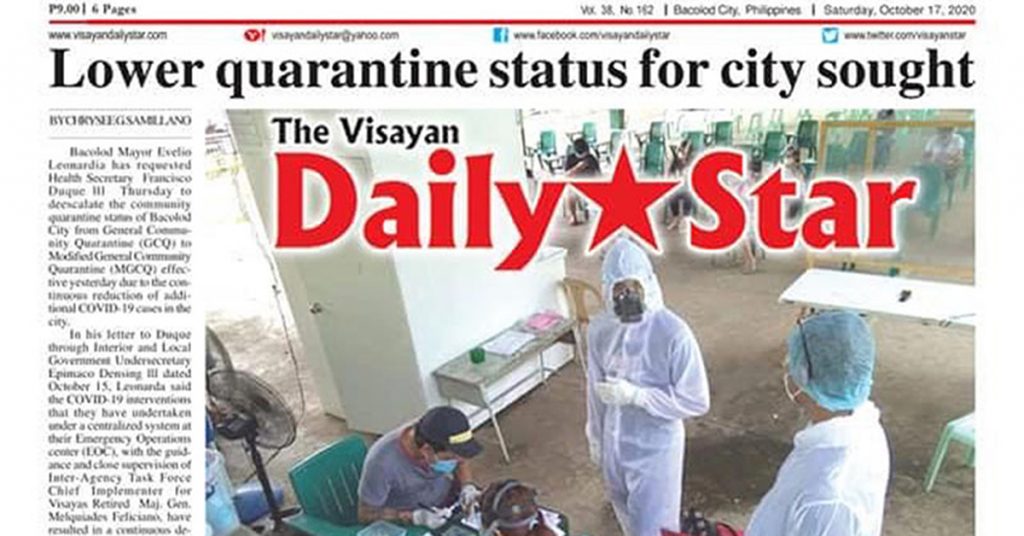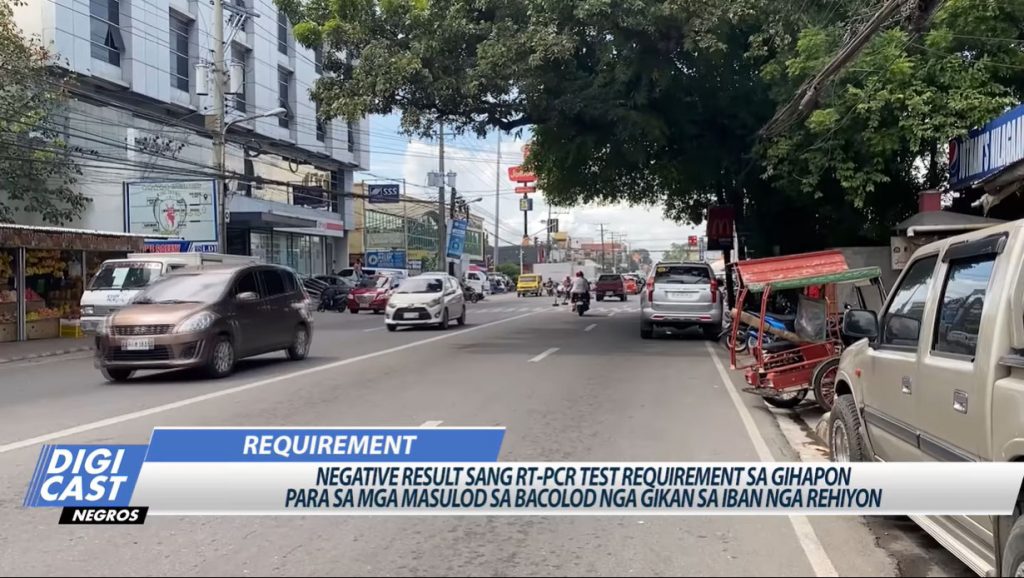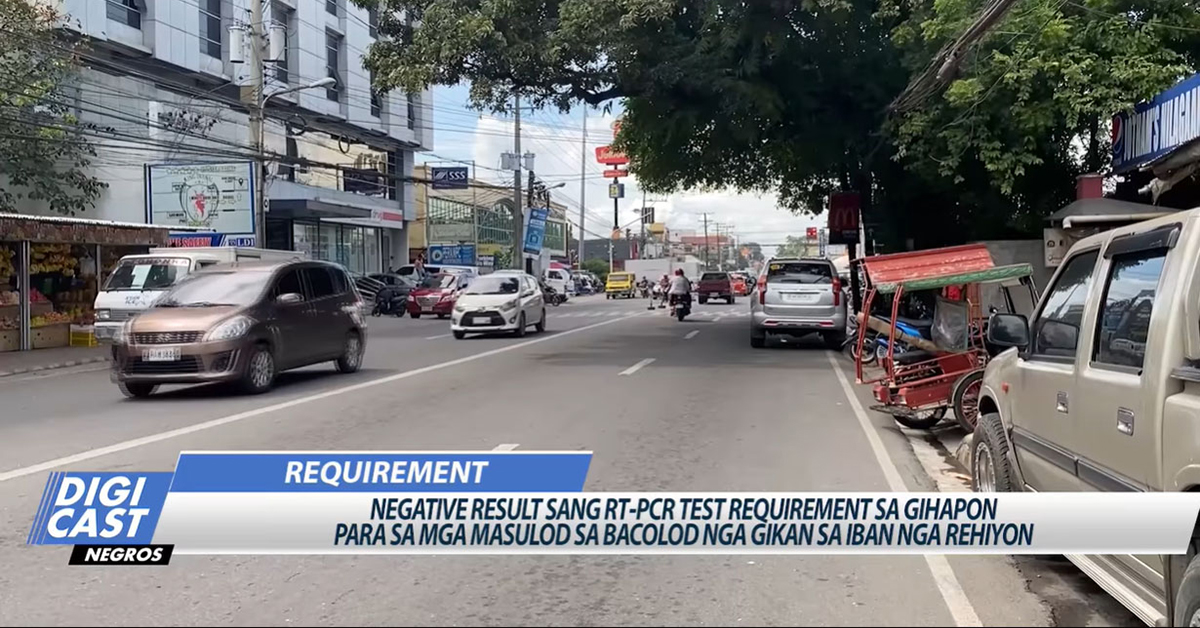After layoffs, Bacolod journalists start digital news platform
by Marchel P. Espina, NUJP Bacolod chapter
BACOLOD CITY — “I really don’t know,” this was all I could muster when Romeo Subaldo, the news chief then of ABS-CBN Bacolod, asked me what I will do after our local newspaper would cease operations in a few weeks.
At that time, around September 2020, Subaldo, along with his colleagues from the embattled TV station, just launched their online news platform, Digicast Negros, on social media site Facebook.
This came just a few days after the country’s biggest network was forced to shut down its stations in the provinces by end of August following the non-renewal of their franchise.
Like me, they were not yet ready to let go of their lives as they still want to continue serving the community.
Subaldo then asked me if I want to join their team as they were planning to put up a news website, with me running it.
Without hesitation, I gave him a “yes.”
He then told me they will launch a Hiligaynon-language newscast, a brand they were known for in the community, in a few weeks, just in time for me to join Digicast, coined from the words “digital” and “newscast.”
FILLING THE VOID
Bacolod City and its neighboring localities in Negros Occidental province lose two of its major sources of news and information in the latter part of 2020, with the closure of the Visayan Daily Star, which had served the community for 38 years, and the local ABS-CBN station.
Subaldo said that many people encouraged them to put up their own news platform because they need credible news at the time of the pandemic.
The strong backing of the community pushed the group to start its own news platform.
I remembered I interviewed Subaldo about this for my news story before. He was upbeat and hopeful, as they were about to conquer the unknown.
At the start of 2020, we were calling the government to renew the franchise of ABS-CBN to save the jobs of thousands of journalists and media workers — only to find myself in the same predicament months later.
By end of that year, we were all in the same boat — working side by side to make our venture successful.
DEATH OF NEWSPAPERS
For years, community newspapers in the provinces have struggled to survive due to declining sales and readership.
But this did not stop the dedicated group of journalists from the local dailies and weeklies from continuing serving the community−until the coronavirus pandemic happened in 2020.

The Visayan Daily Star’s last print issue
The global health emergency has accelerated the inevitable − the death of community newspapers.
For people in the provinces, they heavily relied on local news − newspaper, TV, and radio − for information and updates.
It is where the residents from the rural areas and urban neighborhoods get their daily dose of pressing hyperlocal issues.
However, in the past decade or so, more newspapers have closed down as they could no longer meet the challenges brought by low advertising sales and subscriptions brought by the rise of the internet and social media.
With this trend, editorial content is no longer enough to determine the future of the dailies. There is a need for an aggressive business model to keep the industry afloat.
In an era of disinformation, the loss of local newspapers in the community continues to pose a threat due to the limited access to information and because coverage in rural areas by the dailies will have to step back.
The already struggling newspapers continue to experience the brunt of livelihood loss and the pandemic.
According to the Philippine Press Institute (PPI), a national association of newspapers, at least 10 publications in the country have ceased printing temporarily and have shifted to digital format, while others reduced their circulation and number of pages.
Among those that temporarily ceased operations are: Baguio Chronicle, Mabuhay, Pahayagang Balikas, The Northern Forum, Palawan News, SunStar Baguio, Ilocos Times, Negros Daily Bulletin, Visayan Daily Star, Mindanao Times, Mindanao Gold Star Daily, and Mindanao Observer.
Some of these outfits have started publishing again after the lockdown.
TERMINATION
In late July 2020, we received the news that the newspaper I worked for, The Visayan Daily Star, would temporarily cease its operations because it could no longer meet the challenges brought by coronavirus.
But we continued to work even though we knew it was going to end soon. We received the final nail in the coffin come September. Our last day of work was on October 16.
Since then, I was struggling with my work, because losing this job would overwhelm me financially and emotionally.
I remembered one of my colleagues, who were present during the rallies we held for ABS-CBN, asked me who will fight for us.
I said: “Nobody. We’re left to fend for ourselves.”
And just like that, we vanished into the shadows with no one by our side.
RISING FROM THE ASHES
In just six months, Digicast Negros, composed of broadcast and print journalists, have slowly built its online presence and gained a following.
We now have a daily newscast, weekly lifestyle show, and daily email newsletter.

The shutdown of ABS-CBN and the slow demise of community newspapers have left a news vacuum for many, especially those in the far-flung areas, but for community journalists, despite their struggles to survive, continue to serve the public to ferret out the truth.
After all, the newspaper is just one medium.
Regardless of the platform, online or offline, journalists continue to work hard to keep community journalism alive.
Despite the shift to new formats, the truth remains that journalism is about changing the world, one story at a time.
More from Diarista 2021
Masked Media campaign bags awards
Masked Media Campaign won 2 Golds, a Silver and a Bronze at APAC Tambuli Awards, a pioneer global award show that recognizes effective brands with purpose. MANILA — It’s another win for press...
IFJ forms Asia Pacific fed, NUJP chair elected to executive committee
Newly elected Federation of Asia-Pacific Journalists (FAPaJ) executive committee (Photo by Jonathan De Santos) MANILA — Asia Pacific delegates of the International Federation of Journalists (IFJ)...
Timeline: Finding justice for Gerry Ortega
NUJP is publishing this timeline on the continuing search for justice for Gerry Ortega.







